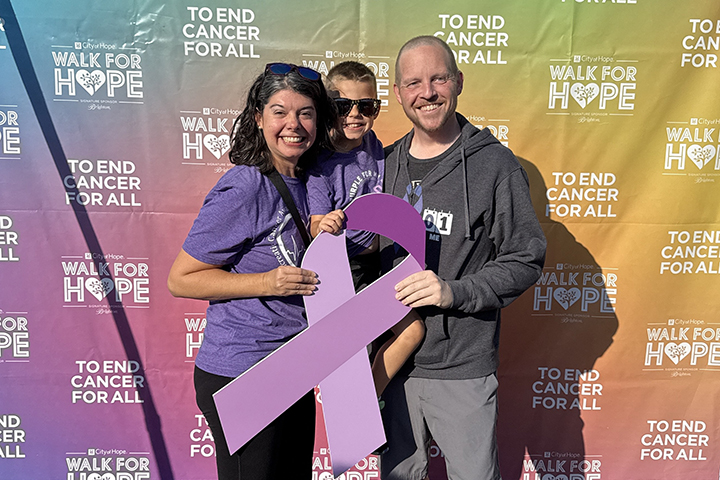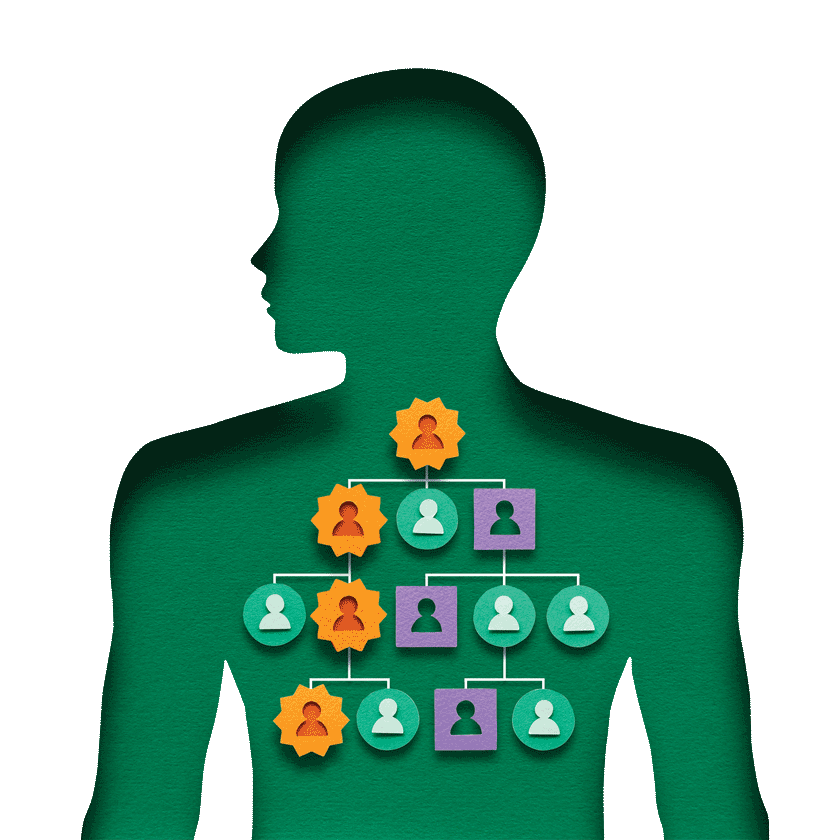PLATINUM Clinical Trial Actively Recruiting

If you have a BRCA1/2 or PALB2 mutation, you may qualify for the PLATINUM clinical trial.
This phase II/III trial is open in 309 locations in 28 states and is actively recruiting patients with metastatic pancreatic cancer whose disease has progressed despite previous treatment.
Research shows that patients with these mutations respond especially well to platinum-based chemotherapy drugs like cisplatin and oxaliplatin. The FOLFIRINOX regimen, which includes oxaliplatin, is commonly used as first-line treatment for patients with metastatic pancreatic cancer. But laboratory studies show that cisplatin acts differently from oxaliplatin, and may be particularly effective against pancreatic cancers harboring BRCA mutations.
“What we know is that patients who have a mutation in the BRCA1/2 or PALB2 gene respond well to this class of drugs called platinum agents,” explains principal investigator Andrew Ko, M.D., a GI oncologist at the University of California San Francisco. “But not all platinum drugs are created equally. We believe that for patients whose disease has progressed on their first line of treatment (typically FOLFIRINOX, or its analogous regimen NALIRIFOX), the addition of a different platinum agent—cisplatin—to the usual standard of care (gemcitabine/nab-paclitaxel) in the second-line setting might result in higher response rates and longer survival. Hopefully, this large trial will give us some much-needed answers.”
A Closer Look at Platinum Drugs
Patients with these mutations whose disease has progressed on FOLFIRINOX are generally given the standard treatment of gemcitabine plus nab-paclitaxel. However, in this study, half the patients will be randomized to receive the experimental triple cocktail of gemcitabine, nab-paclitaxel, and cisplatin, a three-drug combination dubbed NABPLAGEM. It has previously been studied as an initial, or first-line, treatment in patients with advanced biliary tract cancer, as well as in a small study as a first-line treatment for patients with metastatic pancreatic cancer. Both studies showed promising results.
“Finding the optimal chemotherapy regimen for these patients once they have progressed on FOLFIRINOX is extremely important,” Ko says. “We do believe that continuing with a (different) platinum agent in the second-line setting may be beneficial. We already have compelling evidence in the front-line setting that cisplatin, when combined with gemcitabine, confers excellent response rates of about 70 percent in patients with BRCA1/2 or PALB2 mutations. So it is logical to test this combination—actually, as part of the triplet NABPLAGEM regimen—in patients once they are no longer responding to FOLFIRINOX.”
Both BRCA1/2 and PALB2 mutations lead to what is called homologous recombination deficiency (HRD). This deficiency is a cellular condition where cells, particularly cancer cells, are unable to effectively repair double-strand DNA breaks using the homologous recombination (HR) repair pathway. Pancreatic cancers with a mutation in a gene like BRCA1/2 or PALB2 render the HR pathway defective. When a cancer cell with a deficient HR pathway is treated with platinum drugs, the cell can’t repair the DNA damage. This accumulation of unrepaired damage forces the cell to undergo programmed cell death or apoptosis.
“The platinum drugs induce DNA crosslinks and other forms of DNA damage. BRCA- and PALB2-deficient cancer cells are less able to repair this damage effectively,” notes Ko. “So, these cells are really more sensitive to the effects of platinum agents. That leads to better responses compared to tumors without these mutations.”
To participate in the study, patients must have metastatic pancreatic cancer with a BRCA1, BRCA2, or PALB2 mutation, and their cancer continued to grow on first-line treatment with either FOLFIRINOX or NALIRIFOX. Previous maintenance treatment with a PARP inhibitor (for example, olaparib) is also allowed.
“This trial really is an opportunity to find ways to improve outcomes in this unique group of patients by exploiting the genetic vulnerabilities of their cancer and identifying the optimal chemotherapy to use,” Ko says. “This can move the needle in the right direction.”
The Importance of Clinical Trials
Clinical trials allow for the approval of new drugs or new ways of treating diseases or medical conditions, including pancreatic cancer. Every treatment available for pancreatic cancer today was approved through a clinical trial. And the importance of clinical trials cannot be overstated. Much has been written about the reasons people may not participate in clinical trials, and it’s important to “do everything we can” to improve participation in trials for pancreatic cancer patients, Ko emphasizes.
There are numerous reasons as to why people may not choose to participate in a trial. These include cultural barriers, stringent eligibility requirements, and lack of awareness, just to name a few. But a trial like PLATINUM that is offered at so many locations helps with access since it “casts such a wide net for patients with a specific molecular niche” like BRCA1/2 or PALB2 mutations, adds Ko.
The trial is sponsored by the Alliance for Clinical Trials in Oncology, which comprises nearly 10,000 cancer specialists at hospitals, medical centers, and community clinics across the United States and Canada. The Alliance is part of the National Clinical Trials Network sponsored by the National Cancer Institute and serves as a research base for the NCI Community Oncology Research Program.
We encourage you to consult your physicians for clinical trials that may be right for you. The website ClinicalTrials.gov provides more details about this trial as well as many others. You can visit the Let’s Win Trial Finder for a list of all active pancreatic cancer clinical trials.






